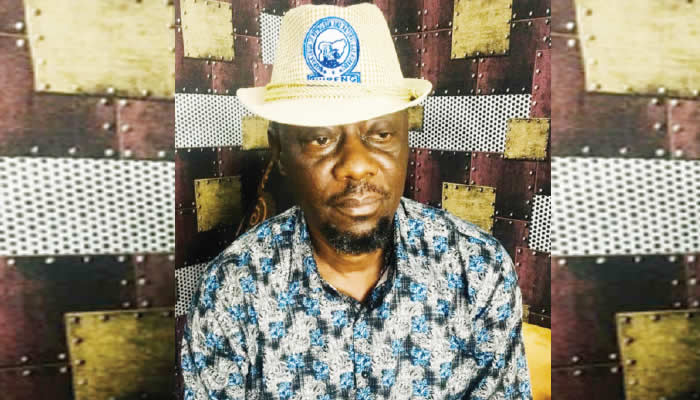The Petroleum Product Retail Outlet Owners Association of Nigeria (PETROAN) has sought to clarify its request for N100 billion from President Bola Tinubu, emphasizing that it is seeking a loan, not a grant. This clarification comes after reports that PETROAN had requested a “grant” to mitigate the impact of fuel subsidy removal on its members. The association argues that this loan, to be administered through a proposed “energy bank,” would provide much-needed relief to struggling retailers who are grappling with significantly increased operating costs. The removal of fuel subsidies in 2023 led to a sharp rise in fuel prices, making it increasingly difficult for independent marketers to stay afloat. PETROAN maintains that this loan facility would not only prevent widespread job losses within the sector but also stabilize fuel prices for consumers.
The crux of PETROAN’s argument lies in the exorbitant interest rates currently charged by commercial banks. Retailers are facing interest rates ranging from 36% to 40%, making it nearly impossible to access affordable capital. The proposed N100 billion loan, accessible through the energy bank at single-digit interest rates, would provide a lifeline to these businesses. PETROAN President, Billy Gillis-Harry, argues that this intervention would not only reduce the financial burden on retailers but also translate to lower fuel prices for consumers. He further projects that this initial N100 billion, when managed effectively by the private sector, could grow to over N700 billion within three years, further bolstering the downstream sector.
Gillis-Harry’s vision extends beyond immediate financial relief, encompassing a comprehensive strategy for the sustainable development of Nigeria’s downstream sector. He advocates for continued investment in critical infrastructure, including refineries, pipelines, and storage facilities. This focus on infrastructure development aims to enhance local refining capacity, reducing Nigeria’s reliance on imported petroleum products. He also stresses the importance of supporting indigenous companies and fostering innovation through research and development. This commitment to local content development is central to PETROAN’s vision for a robust and self-reliant downstream sector.
The proposed expansion of Compressed Natural Gas (CNG) infrastructure also features prominently in PETROAN’s roadmap for 2025. Recognizing the potential of CNG as a cleaner and more affordable alternative fuel, Gillis-Harry urges increased government investment in this area. He also calls for greater private sector participation, streamlined regulations, and public awareness campaigns to promote wider adoption of CNG. By addressing these key areas, PETROAN believes that the potential of CNG can be fully realized, contributing significantly to Nigeria’s energy mix.
Addressing the persistent challenge of cross-border fuel smuggling, Gillis-Harry recommends strengthened collaboration with neighbouring countries and the deployment of digital tracking systems. This dual approach aims to enhance border security and monitor the movement of petroleum products from refineries to retail outlets, thus curbing illegal activities. Furthermore, PETROAN emphasizes the need to prioritize local refineries in the allocation of crude oil, ensuring a consistent supply of raw materials for domestic fuel production. This measure, according to Gillis-Harry, is crucial for boosting Nigeria’s refining capacity and reducing its dependence on imported fuel.
Reflecting on the past year, Gillis-Harry acknowledges the significant strides made in the downstream sector, particularly the rehabilitation of the Port Harcourt Refinery and the emergence of the Dangote Refinery. These developments, he notes, signify positive progress toward greater self-sufficiency in fuel production. However, he maintains that challenges remain, and continued adaptability, innovation, and a commitment to sustainable development are essential for future growth. To this end, he calls for the privatization of the Warri and Port Harcourt refineries, believing that this will further enhance efficiency and competitiveness within the sector. The National Vice President of the Independent Petroleum Marketers Association of Nigeria (IPMAN), Hammed Fashola, echoes these sentiments, advocating for a specialized bank dedicated to the oil and gas sector. This specialized bank, akin to the Bank of Industry, would understand the unique needs and challenges of oil and gas marketers, providing tailored financial solutions.
In essence, PETROAN’s request for the N100 billion loan represents a multi-pronged approach to stabilizing the downstream sector and ensuring its long-term viability. By addressing the immediate financial challenges faced by retailers, promoting investment in critical infrastructure, and fostering innovation in alternative fuels, PETROAN aims to create a more robust, efficient, and sustainable downstream sector for Nigeria. The association believes that this strategic intervention will not only safeguard jobs and stabilize fuel prices but also contribute significantly to Nigeria’s overall economic growth and energy security. The call for a specialized energy bank underscores the need for tailored financial solutions that cater specifically to the unique demands of the oil and gas sector, ensuring its continued growth and development.


